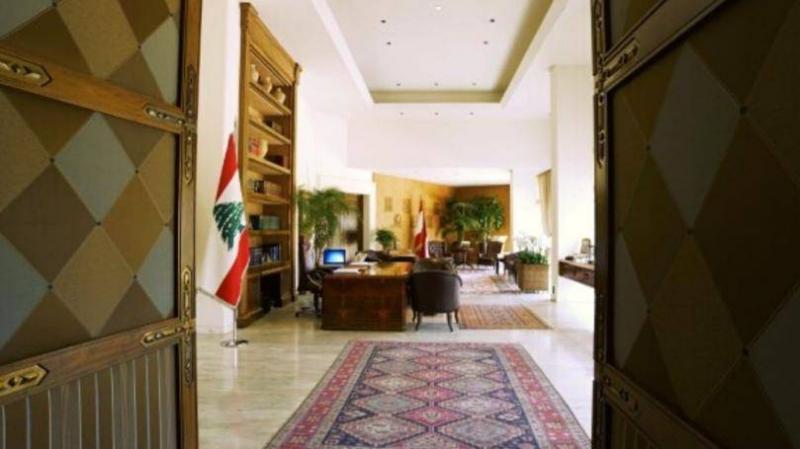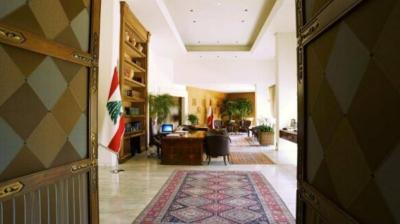Christian spiritual leaders continue to pressure for the presidential elections to take place on time and for no one to be elected to this position. Yesterday, Maronite Patriarch Cardinal Mar Bechara Boutros al-Rahi elaborated on the qualities required in the new president, stating that "alignment with one side has only brought us crises that almost topple the Lebanese state and the formula of living together, especially in modern Lebanese history. The Maronite Patriarchate has accustomed itself to being the voice expressing the feelings of the Lebanese and to openly declaring pivotal national positions that some hesitate to express, even if they believe in them. The role of this entity throughout history has been to defend all Lebanese and the Lebanese entity, to face challenges, and to endure hardship without succumbing to pressures or any attention to opportunism. If serious candidates for the presidency commit to seeking to declare Lebanon's neutrality, they would gain the trust of the majority of Lebanese, Arab, and international public opinion. The people need a president who will withdraw Lebanon from conflicts rather than renew its residence in them."
He said, "In this context, it is natural for the Lebanese people to learn about the vision of every serious presidential candidate. Indeed, the president in Lebanon does not act alone, as he presides over the republic with elevation and neutrality alongside the parliaments and other constitutional and administrative institutions. However, this does not exempt the candidate for this position from demonstrating their vision for the problems, crises, and solutions, and clearly stating their positions on vital issues, such as: What path will they take to achieve national reconciliation on national bases? What are their national and reform priorities for economic and financial recovery? What course will they follow to guarantee the Lebanese entity and prevent its fragmentation? How will they work to implement expanded decentralization? What is their stance on holding an international conference specific to Lebanon and defining its points, including relevant international resolutions concerning Lebanon? How will they restore Lebanon's role in its Arab, regional, and global surroundings? What is their plan to solve the Palestinian refugee issue and return Syrian displaced people to their homeland? What do they propose to organize the return of Lebanese who were forced to flee to Israel in 2000? In light of all this, we say: It’s unacceptable at this critical juncture to hear names of candidates appearing here and there without seeing any vision from any candidate. Enough with the surprises."
For his part, Metropolitan of Beirut for the Greek Orthodox Church, Archbishop Elias Audeh, said, "The president we want is one who is close to his people, understands their concerns, adopts their dreams, and works to achieve them. He should be passionate about his country, devoted to serving it, selfless, and free from self-interest and ego. A dignified person who restores the dignity, sovereignty, and stability of the state, and leads it wisely, knowledgeably, and experienced rather than through followers. A president who restores Lebanon's place in the hearts of its citizens first, then in its surroundings and the world, building its future on solid foundations that no storm can shake, possessing a clear vision and a strong personality with humility, a clever negotiator who listens well to his interlocutors and correctly chooses and leads his team, anticipating events and envisioning the future. Courageous when necessary, gentle when required, with no bias or allegiance except to Lebanon, respecting the constitution and laws, and not being lenient with violators. He implements democratic principles, respects values, and does not compromise or concede his rights. In short, we need a president free from the burdens of interests and connections, who puts Lebanon’s interest first and works solely to achieve it, so that the people will rally around him and follow his example."
These statements gain importance as they come from these high-ranking ecclesiastical authorities while serious discussions about the future president are beginning to take place in the political arena, according to sources opposing "The Central News". Notably, the head of the Free Patriotic Movement, MP Gibran Bassil, remarked from Dbayeh that the president should be a product of his environment and represent its sentiment. This is a correct and valid statement, the sources added, and Rahi and Audeh are among the best articulators of the Christians’ sentiment. The question arises: Will those who do not believe in neutrality and the necessity of implementing international resolutions, or in the best relations between Lebanon and its Arab surroundings, and those who do not believe in the sovereignty of the state alone over its lands without any "speculative" partner, and those who have proven to be incapable of reform and fighting corruption, withdraw from the presidential race and leave space for others since they do not represent the Christian sentiment?




